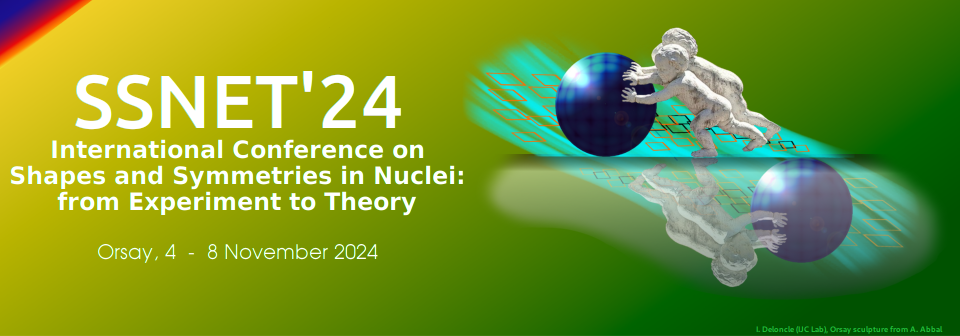Orateur
Description
A range of theoretical approaches, including ab initio calculations, have predicted that well-developed cluster states can be found in the low-lying states of light neutron-rich nuclei, including the ground-state. We have realized a pioneering study at RIKEN based on the measurement of triple differential cross-sections of the cluster knockout reactions (p,p) with proper kinematical conditions on neutron-rich unstable beams for the first time. Such an approach probes the spatial distribution of clusters in the nucleus of interest. In this first study clustering in the neutron-rich Beryllium isotopes was investigated. The analysis of the differential cross-sections validated the molecular-type structure of the ground state of 10Be predicted by state-of-the-art microscopic models THSR and AMD. These results [1] bring experimental evidence that clustering plays a crucial role in the ground-state of light neutron-rich nuclei, challenging the conventional Ikeda picture. In a next step, the completion of the data analysis of 12,14Be(p,pa) will allow to infer the evolution of alpha-clustering with increasing neutron number up to the dripline, e.g pinpoint the role of the extra-neutrons. Beyond alpha clustering, the present knockout experiment though optimized for (p,p) gave us a first opportunity to investigate triton clustering in neutron rich light nuclei.
[1] P.Li et al., Phys. Rev. Lett. 131, 212501 (2023)

